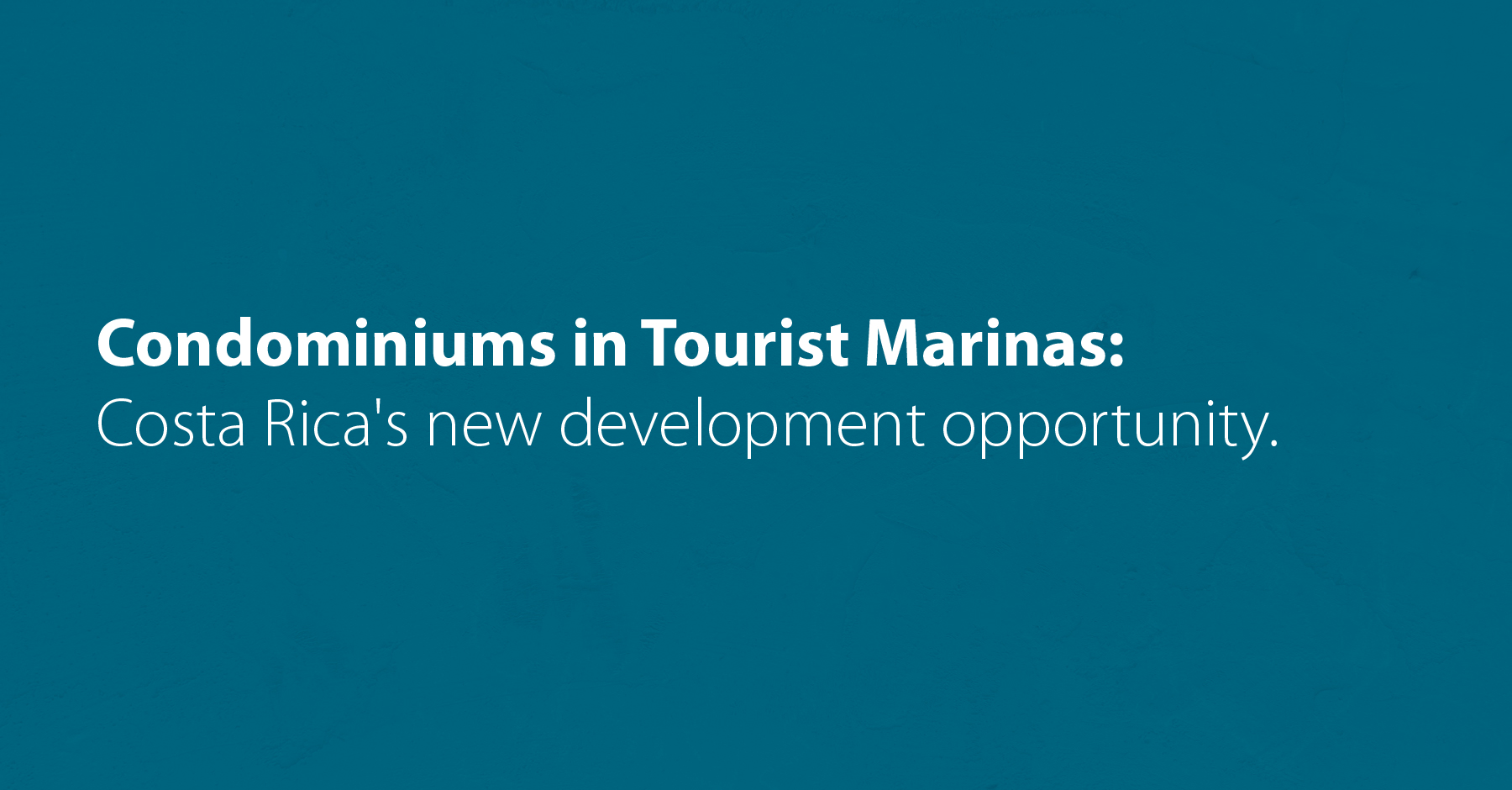As part of the natural process of evolution of any real estate project, opportunities for diversification, structuring, and offering new real estate products arise over time.
In Costa Rica, tourist marinas have been a clear example of how the natural conditions of a country, in our case, the coasts, can assertively enable the commercial and tourist development of a particular region.
The growth in demand that marinas in our country have had in recent decades warranted the discussion and proactive work of the marina and real estate sectors for approval by the government and its respective institutions to establish a condominium in a marina.
The concept of condominiums, widely implemented in the country at a residential, commercial, and industrial level, has enabled the real estate sector to present investors and end buyers with a highly competitive product.
We currently face the possibility of beginning to consolidate condominiums in marina concessions in Costa Rica, both in the land area and in that covered by the water, with the scope of uses currently permitted in the Condominium Law and its Regulations. Beyond the novelty of this new type of legal structuring entails, what is certain is that the concept presents many advantages for the real estate supply in coastal sectors and, at the same, time enables marinas to develop modern real estate designs and gives them a much higher degree of sophistication compared to marinas of a similar profile located in other countries.
Among the aspects to stress at an operational level is the fact that our National Property Registry has already modified its Real Estate Qualification Guide to enable registration of this type of condominium, as well as the joint work that the Interinstitutional Marine Commission and Tourist Berths (CIMAT) and the Institute of Housing and Urban Planning (INVU) have done regarding the future processes of technical and legal reviews of the condominiums in marina plans presented to them. Thus, the concessionaire would first present its condominium proposal to the CIMAT, which would validate compliance with the requirements stipulated for a marina, after which the condominium process would continue through the corresponding institutional approval platform.
Emphasis belongs to the fact that each new subsidiary concession existing within the marina condominium must have a concession contract under the same conditions as the original marina concession and, therefore, have the same expiration date as the original concession.
We now face a new stage in the legal and technical evolution of condominiums in Costa Rica and even more so in implementing a legal structure at the level of tourist marina concessions that will enable developers to have real estate products in line with the requirements of the international market.
Anneth Jiménez
Partner
Costa Rica
E-mail




